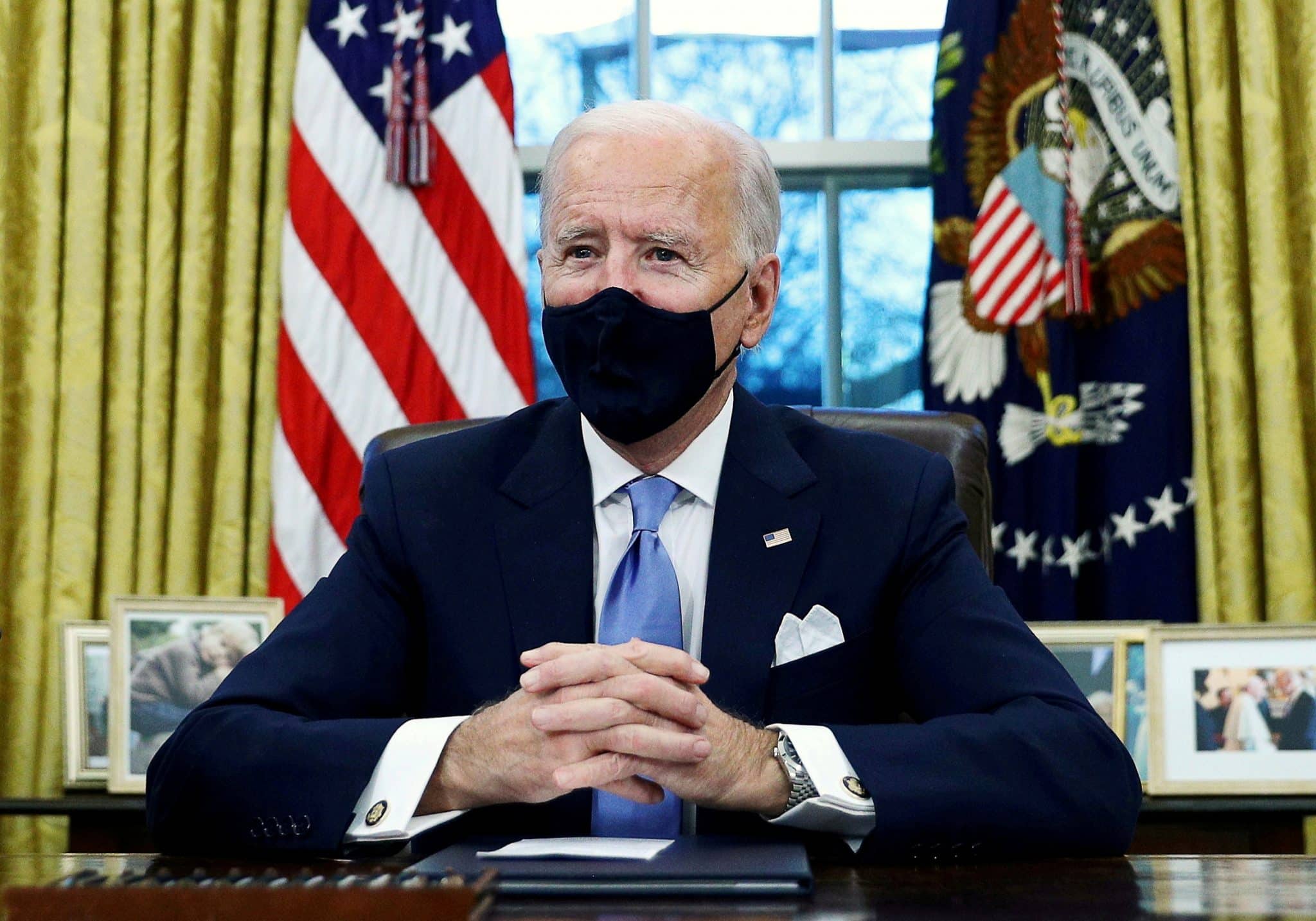President Joe Biden on Monday overturned a controversial ban by his predecessor on transgender individuals serving in the U.S. military, a move that fulfills a campaign promise and will be cheered by LGBTQ advocates.
Former Democratic President Barack Obama in 2016 allowed trans people to serve openly and receive medical care to transition genders, but Republican President Donald Trump froze their recruitment while allowing serving personnel to remain.
“President Biden believes that gender identity should not be a bar to military service, and that America’s strength is found in its diversity,” the White House said in a statement.
“Allowing all qualified Americans to serve their country in uniform is better for the military and better for the country because an inclusive force is a more effective force. Simply put, it’s the right thing to do and is in our national interest,” it said.
When Trump announced the ban in 2017 on Twitter, he said the military needed to focus on “decisive and overwhelming victory” without being burdened by the “tremendous medical costs and disruption” of having transgender personnel.
A November 2020 report by the LGBT-rights think tank the Palm Center co-written by former military Surgeons General said the transgender ban had hurt military readiness.
While advocates applaud Biden’s move, the fact that any president can decide whether transgender people can serve in the military is problematic, they say. Any American who is fit and able should have the right to serve, they say.
During his confirmation hearing, Biden’s pick to lead the Pentagon, Retired Army General Lloyd Austin, said he supported overturning the ban.
The U.S. Supreme Court ruled that the Trump transgender policy of 2019 could stand while it faces separate lawsuits in lower courts.
About 1.3 million active personnel serve in the U.S. military, Department of Defense data shows. There are no official figures on the number of trans members but the Rand Corp, a U.S. policy research institute, estimated in 2016 about 2,450 active service members were transgender.
(Reporting by Idrees Ali, Phil Stewart and Jeff Mason; Editing by Doina Chiacu, Chizu Nomiyama and Bill Berkrot)
























